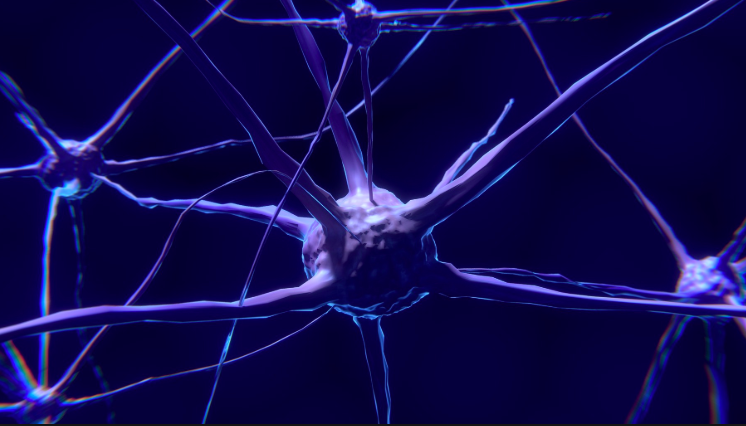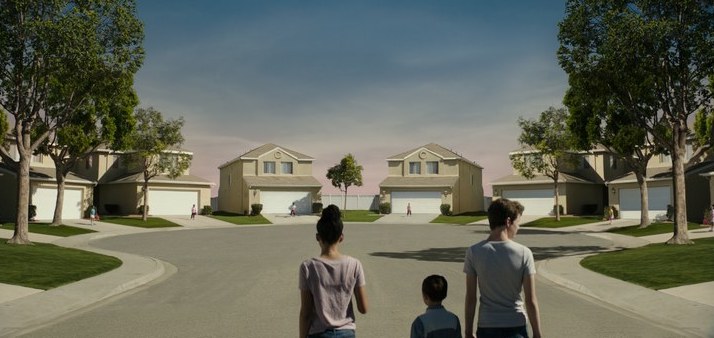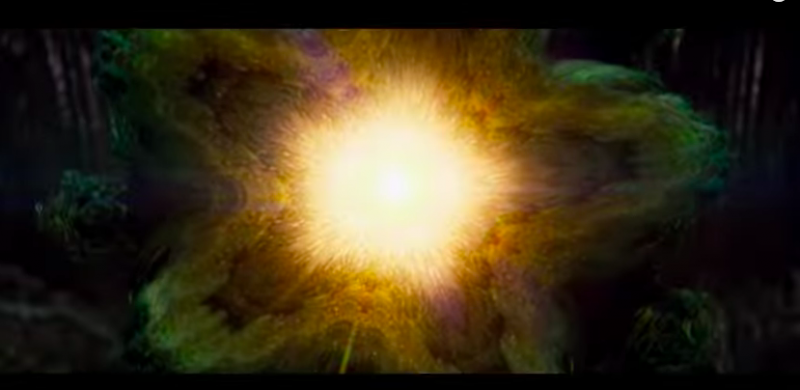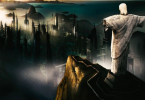aNewDomain — The band Qntal has been around since the early 1990s, but after a six-year hiatus, it has begun to tour and released a new album, Qntal VII.
Qntal, whose sound has been described as “darkwave/neofolk,” consists of original members Michael Popp and Sigrid “Syrah” Hausen, as well as Sarah “Mariko” Newman, who joined the group after meeting them on tour. Another recent addition, Leon Rodt, has been described as the band’s “electronic mage” and fills the roles of producer and keyboardist.
It’s difficult to say in a few words what Qntal’s music is like. There’s the original track, “Ad Mortem Festivamus,” which captivated dance hall crowds in 1992.
Video: Qntal – Ad Mortem Festinamus
Since that ominous beginning, Qntal has released six albums, conveniently titled Qntal I, Qntal II, and so on, during the ’90s and 00s. Over the many songs in the catalogue, listeners can hear a wide range of sounds — slow, dirge-like compositions mix with frenetic “four on the floor” beat-driven tracks. Qntal mixes sounds from across the centuries featuring modern synthesizers, samplers and normal electronica gear with the plinking and clunking of old medieval instruments like the “tar,” a Persian single string instrument whose etymology is linked to the modern six-string guitar and many-stringed sitar.
Sitting Down with Qntal
For more on the band’s signature sound, we sat down with founder Michael Popp, just off a Hamburg, Germany tour date, to talk about the approach and the concepts underlying Qntal’s music.
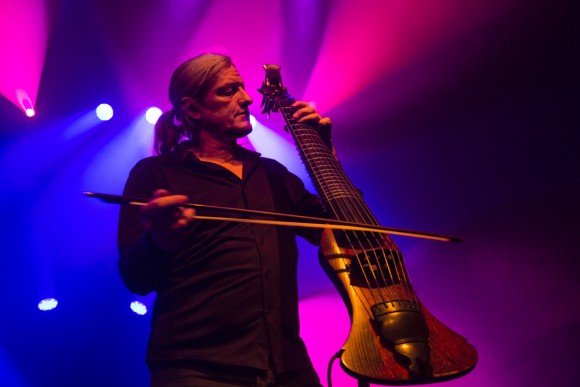
Popp said the project emerged as an experiment that mixed the medieval with contemporary sounds and technologies. Calling Qntal’s vision a “theoretical idea,” he said the band began exploring their sound with “Ad Mortem Festivamus,” and refined with subsequent tracks, trying to find a way to combine old and new ideas, acoustic and electric sounds, and seeing the similarities between them.
We thought that these two types of music had lots in common … The cross-over is the whole thing.”
The words in Qntal’s songs are not written by band members — instead, they traditionally use medieval texts. But more recently tracks have included more modern literary works, such as the poem “The Tyger” by William Blake, which is on Qntal VII. Popp cited his interest in artists of more recent eras, such as Wagner and some British romanticists, in addition to his passion in ancient medieval music.
It’s like a meta-level of medieval music.”
But, he also said there is a method to which lyrics are chosen. Sigrid Hausen researches a variety of texts and will compile a book for band members to look at when collaborating on emerging tracks. The result is a kind of authenticity that imbues Qntal’s modern sound with the feel of something drawn evocatively from the corridors of ancient history. Popp felt that the troubadours of those long-ago eras were in some ways the ancestors of today’s independent singer-songwriters.
The medieval is so attractive because you can interpret it in so many different ways.”
To spice up many tracks Qntal relies on a lot of modern production work, which, Popp said, has gotten significantly easier since the early ‘90s. Today the band can run a fiddle through a vocoder machine, add digital sound samplers or lay down synthesizer tracks fairly easily, which was not so simple back when they began — Qntal’s first album was produced on an 8-track mixer. The rise of electronica, and the gear that comes with it, has made their unique sound easier to produce.

“It’s completely different now,” Popp said, citing the challenges of creating complex “techno-electrical” tunes in the early years. He said that new technology has created a kind of “democratization of music,” where high-quality production plays a much less important role than it used to. But he also said that there was something to be learned from the process, and from the advancement in sound technology.
Many assume that musicians start with what they want to hear, and build technology that allows them to play it. But Popp posits that really musicians and producers start with what’s possible at a given time, and then proceed to use it creatively.
In the framework of the technology, you create a style. Out of restriction comes style.”
Listen
To get an idea of what all of this conceptual work sounds like, listen to a track entitled “The Whyle” (pronounced “wee-leh”) from the album Qntal V: Silver Swan.
Video: Qntal – The Whyle
In this song a range of sounds is applied to a minor chord progression and imbued with inspiring vocals to produce a sound that gallops along. It evokes the feeling and sound of medieval-esque music, which draws many listeners to this specific genre. It’s not hard to hear elements of classical melodies in the work, or to imagine the ambient sounds the stomping of horses’ hooves and tolling of ancient bells.
Popp said “The Whyle,” partially based on old English/Irish works, is an example of a song that was produced “roughly” to create a certain wildness of sound. Initially he used only his Macbook Air’s built-in microphone to start building that represented the “wild, windy, rough climate” of Ireland. Wind sounds, he said, were added into the track for that reason. Also, he didn’t want the track to sound too “nice” or “elegant,” but more like his vision of Irish musicians playing in a pub.
They are old instruments. They hang them in the bar, they play them drunk …”
To contrast with the wild, whirling dervish sound of “The Whyle,” listeners can try out several darkly gothic tracks on Qntal IV: Ozymandias, recorded just a year earlier. A standout track on that album is titled “Remember Me,” which has spare lyrics but a large soundscape that starts out with an almost industrial sound. It then morphs into a very medieval-sounding composition that plays throughout the operatically sung verse and chorus.
Video: 13.Qntal – Remember Me
The New Album
When I spoke with Popp, just as Qntal VII began to make its way out to listeners on both sides of the Atlantic, he said that the band is at work building connections for American distribution. They had plans to talk to a Philadelphia-based company about new efforts to promote Qntal’s sounds in America where the band doesn’t tour often, barring some special appearances at genre events.
Meanwhile, Qntal VII is now available on iTunes, with 14 new tracks, including the Blake-inspired “Tyger” and “Fruhlingslied” (translated to Spring-time), which feature some of the exotic instruments that add a classic sound to the album. For students of history, fans of gothic sound and others attracted to the diversity at the fringes of today’s music world, Qntal doesn’t disappoint, and these albums are a fascinating look at bringing technology, as well as ancient history, into the mix.
For aNewDomain, I’m Justin Stoltzfus.
All Photos Courtesy of Sigrid “Syrah” Hausen of Qntal


